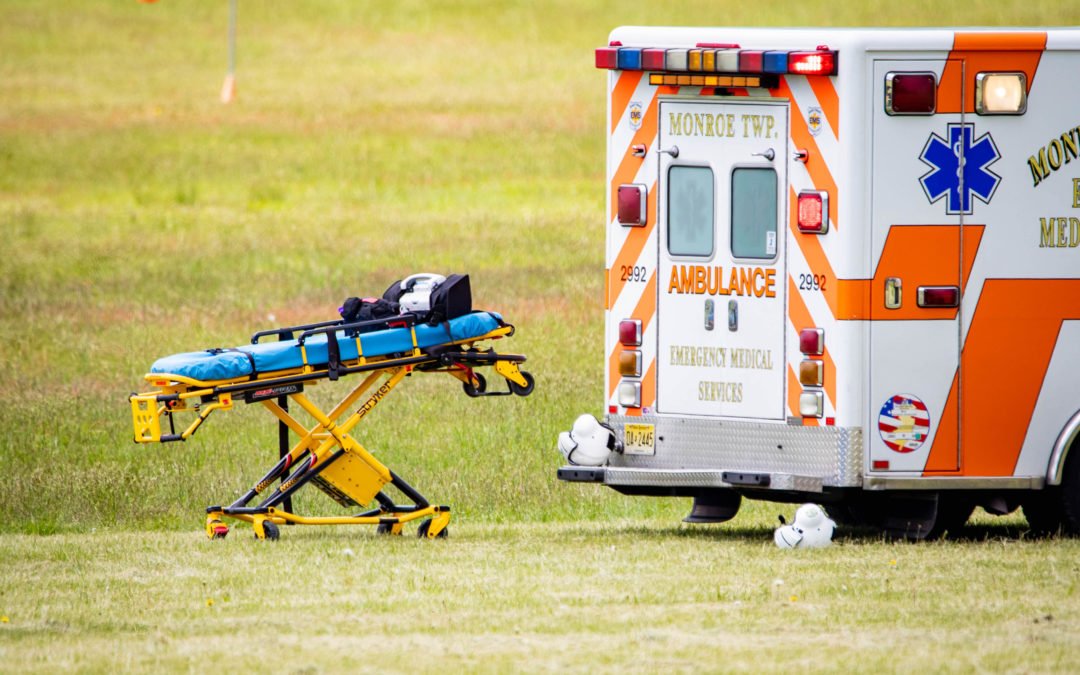First responders see some pretty gory injuries. But it’s not just the paramedics and the firefighters that have to face the broken bones and blood. If you’ve been in ministry for very long, you’ve found yourself first on the scene to life-altering situations like suicides, the death of a spouse, a serious car accident …you can fill in your own list here, I’m sure. In going through those tragedies with people, we learn how to triage, how to help them through the trauma event and make their way towards healing. But what about when it’s not someone else? What happens when we are the one facing the injury? And what happens when the injury is one that few people talk about – the injuries that happen to us because we’ve responded to the call to shepherd broken people who act in ways that are broken.
How do we offer that same kind of healing to ourselves that we’ve offered to the ones God has called us to come alongside?
The other day, I was reminded of some of the gory physical injuries we’ve seen throughout the last thirty years of ministry (yes, especially in youth ministry!) One summer, we’d taken a group of high schoolers to the VERY rural hills of Applalachia where we were putting on some new roofs and doing some painting. One of our teenage girls bent down to pick up a bin of tools on a construction site. A saw blade was sticking out the side of the bin and when she stood up, the blade tore through the muscle on the underside of her forearm. It was a bloody mess. Rachel found Craig and I and said, “I think I need to go to the hospital”. She was right.
I think some of our ministry injuries are a lot like Rachel‘s arm injury. When we are wounded, there’s several phases that we need to navigate to finally experience healing and be restored to a healthy place.
STEP ONE: Navigating the crisis itself.
Maybe we’ve just gotten word, out of nowhere, that we are “no longer a good fit” and we’re being “asked to leave.” Maybe our spouse has been wrongly accused. Or maybe a close friend that we’ve trusted for years, who has been in our trench fighting this battle right beside us, sharing our victories and our tears, has decided to leave the church (and leave us, because they often go together). Whatever the context, we may experience panic and shock. Adrenaline dumps into our system. We feel ourselves in the fight/flight/freeze place. We may want to cry, scream or we may just feel numb. But really, we just need to breath and allow the Holy Spirit to guide us through this valley. We depend on Him to guard our tongues and enable us to walk through it with grace and kindness, refusing to damage the cause of the gospel with our actions.
Many times, our spouse is the one having to navigate that life-altering event. Here are some ideas for coming alongside him in this:
- Ask him “What does God want FOR you in this?” Remind him that God is for him, is working for his best, and is committed to completing the work He began in him.
- Ask him “What does God want FROM you in this? How does He want you to walk? This obedience is all that God is asking of him.
- Be on your knees for him during the event. I remember packing up our girls, heading to a hillside by our church with a blanket and dinner and praying their Daddy through a very painful conversation God had called him to have. We were doing battle on his behalf.
STEP TWO: Stopping the bleeding.
Painful events feel like they are sucking the life out of us. Sometimes God helps us stop the bleeding through talking with Him, but sometimes He requires us to ask someone else to help us. Often the bleeding stops when we can tell the story to someone that understands. When we do this, our pain is validated and normalized (two psychological terms that just mean “I understand why you feel the way you do” and “it’s only natural that you feel this way, after what happened. You are not a freak.”)
Here are some tips for helping your husband stop the bleeding after an injury:
- Ask him what he needs – does he want to talk about what just happened or does he need a little time alone first. Don’t assume he needs what you’d need.
- Empathize – seems obvious, but hearing that someone understands how we feel and why we feel that way calms our fight/flight/freeze response and dumps “feel good” cortisol into our systems to combat the crisis chemicals that have flooded our bodies.
- Ask the Holy Spirit to be guiding your words and your silence. Sometimes just being “in it” with him, so that he isn’t alone is the gift you bring.
STEP THREE: Cleaning and preventing infection.
This is crucial for setting us up for real healing. For us, infection looks like the festering anger and bitterness that can happen in our own soul, preventing us from going into future ministry situations with an open heart. Even when we might want to walk forward and love others wholeheartedly, those future relationships can be poisoned with suspicions, a critical heart and a protective reserve caused by unhealed bitterness. Sometimes this festering is fed by lies we have embraced that had their root in the painful circumstances of the ministry hurt.
Here are some questions and tips to help uproot these starts of bitterness:
- What lies do I believe about myself as a result of what happened in our ministry situation?
- What lies do I believe about God as a result of what happened in our ministry situation?
- What lies do I believe about God’s people as a result of what happened in our ministry situation?
- Have a time of confession with the Lord about seeds of bitterness that I have held onto.
STEP FOUR: Beginning the actual healing process.
This is what turns a gaping wound into a scar. It will always be a part of our story. We will never be able to get rid of the evidence of the hurt. But it won’t hurt as much anymore. Instead of festering and continuing to be a risk for infection from more wounds that might come along, the scar serves as a healed-over reminder of God‘s faithfulness as our Healer. This can be a long process and one that might go in starts and stops as God brings new people and circumstances into your life to use to bring healing.
Here are some tips that have helped me in this stage:
- Find someone that can help you see God’s hand working through the pain. That can point out His redemption, reminding you that nothing is wasted.
- Make a list of the losses/disappointments that were a part of that painful season. Spend some time with the Lord thanking him for all the ways He is working through all things for our good.
QUESTIONS FOR REFLECTION:
Where are you when you think of your periods of deepest ministry pain?
- Are you in the crisis? Are the sources of the injury still at work in your life?
- Are you in triage? Trying to figure out how to get to a safe place and stop the bleeding?
- Maybe you’re in the infection stage? You see the wound. You still feel the pain and you may see the bitterness and anger that have come as a result.
- Maybe you have started the healing process? You are looking for ways to allow God to change the gaping wound into a battle scar – a testament to His faithfulness.
So whether you are in the thick of the crisis and just trying to breathe or you are trying to move forward in faith that God still has something for you, know that He is WITH you in this. He is committed to your healing and wholeness. It may take some time and some work, but remember,
“after you have suffered a little while, will himself restore you and make you strong, firm and steadfast.” 1 Peter 5:10



